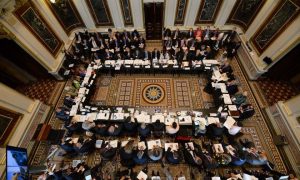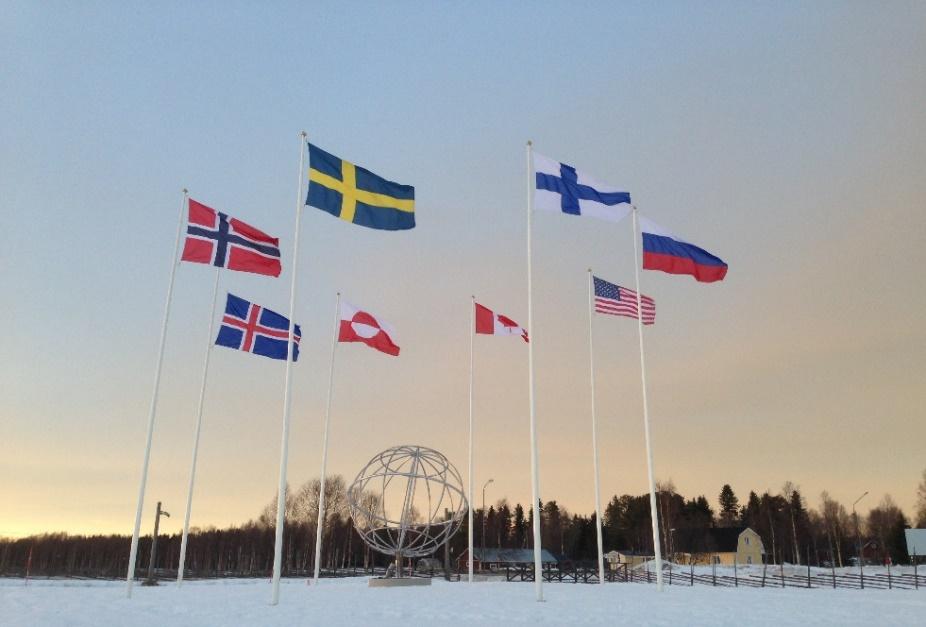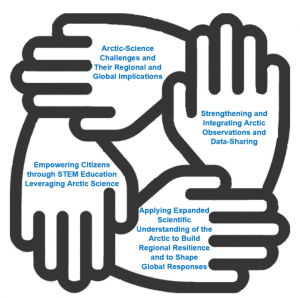Unprecedented environmental changes are occurring throughout the Arctic region due to rapid shifts in climate, social, and industrial activities. While the Arctic is home to only eight countries, the implications of these changes impact the rest of the world through both new strategic opportunities and many unknown risks. The challenges of enhance Arctic observing transcend the capabilities of any one country. By enhancing a pan-Arctic observing partnership, the U.S. and its international partners will be readily able to predict, anticipate, and enact measures for social, environmental, and economic needs for the next generation.
U.S. AON’s international partnerships are fostered through the Sustained Arctic Observing Network (SAON), which promotes well-defined and synthesized pan-Arctic observing and data sharing systems that serve societal needs, particularly related to environmental, social, economic, and cultural issues. Members of the SAON Board are the Arctic states, permanent participants and Arctic Council Working Groups (WG), non-Arctic states, and regional and international organizations with an interest in Arctic observational activities.
Also relevant to US AON’s international partnerships are other global organizations with a stake in Arctic, polar and cryospheric observations including the Group on Earth Observations – Cold Regions Initiative and WMO’s Global Cryosphere Watch.
In 2016, the United States hosted Science Ministers from 25 governments and the European Union, and in partnership with Arctic Indigenous representatives, for the first-ever Arctic Science Ministerial (ASM) to discuss and recommend opportunities for increased strength and cooperation for Arctic science and observation needs. Leaders recognized that while many collaborative research and observation activities currently exist, the need for more comprehensive, improved, and cross-disciplinary platforms were essential in order to implement a truly pan-Arctic Observing Network of the future. A commitment to international cooperation for Arctic science and observational growth was formalized, upheld by four key themes:
 Arctic-Science Challenges and Their Regional and Global Implications
Arctic-Science Challenges and Their Regional and Global Implications
Strengthening and Integrating Arctic Observations and Data-Sharing
Applying Expanded Scientific Understanding of the Arctic to Build Regional Resilience and to Shape Global Responses
Empowering Citizens through Science Technology, Engineering, and Mathematics (STEM) Education Leveraging Arctic Science.
The second AMS will be held in Berlin, Germany, in October 2018 to showcase and promote the latest achievements based upon the deliverables agreed upon at the first AMS, increase the capacity to respond to major societal challenges in the Arctic, and continue to encourage future scientific cooperation among countries and representatives of Arctic Indigenous peoples.


